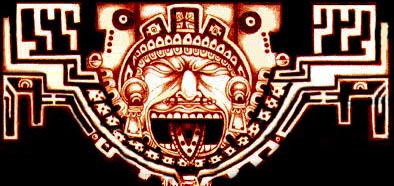

HISTORY
History
Christopher Columbus landed on Trinidad on July 31, 1498, during his third voyage. At that time, the island was populated by a relatively peaceful Arawak subgroup called Igneri, who engaged in primitive agriculture, and the fierce Caribs, who were gatherers on a lower cultural level.
Colonial Rule
Spain subsequently colonized the island and in 1532 appointed a governor for it. The indigenous population was soon worked to death or exiled, after which African slaves were brought in. During the 17th century the island suffered from raids by the Dutch and French. During the French revolutionary period, many French families came to Trinidad from Haiti and other islands of the West Indies. In February 1797, during the wars of the French Revolution, Trinidad capitulated to a British force, and in 1802, following the Treaty of Amiens, it was formally ceded to Great Britain. Slavery was abolished in 1833, and between 1845 and 1917 more than 150,000 Muslim and Hindu Indians were brought to the island of Trinidad by the British to replace plantation slaves.
Tobago, inhabited by the Caribs, was also sighted in 1498 by Columbus. It was successively a Spanish, British, Dutch, and French possession until 1814, when France, at the end of the Napoleonic Wars, had to cede the island to Britain. Tobago formed a part of the Windward Islands Colony until 1889, when it was joined to Trinidad.
Independence Gained
Trinidad and Tobago was a constituent part of the Federation of the West Indies from April 22, 1958 until May 31, 1962. On August 31, 1962, Trinidad and Tobago became an independent state in the Commonwealth of Nations. It joined the Organization of American States in 1967. In 1968, along with other English-speaking Caribbean states, it formed the Caribbean Free Trade Area (CARIFTA), which in 1973 was replaced by the Caribbean Common Market.
The People's National Movement (PNM), in power from the country's independence (1962) until 1986, drew much of its support from the black urban and the business communities; its leader from 1962 to 1981 was Prime Minister Eric Williams. In the early 1970s, the nation faced a social and economic crisis. Rioting erupted in Trinidad in April 1970, resulting in several deaths and many injuries. The situation was further complicated by a short-lived mutiny of elements of the army. A state of emergency was declared. Although the riots had overtones of a black nationalist campaign, observers saw economic factors as the basis of the trouble. In response, Prime Minister Williams announced that a recently appointed Commission on Racial Discrimination would begin hearings when order had been restored. The state of emergency, which had been extended through 1971, was ended in June 1972.
Republic established
During 1973 the oil revenues of Trinidad grew rapidly as the country became the third leading exporter of oil in the western hemisphere. But early in 1975 the rate of unemployment was a high 17 percent and that of inflation soared to 23 percent. In March and April of that year labor strikes in the oil and sugar industries and sympathy strikes by transport and electrical workers paralyzed the economy, costing the country an estimated $200 million. Prime Minister Williams was widely accused of not providing adequate leadership to the country. Inflation eased somewhat the following year, although unemployment remained high. Williams remained in office after elections in September 1976 under a new constitution that made the country a republic within the Commonwealth. A rash of firebombing, arson, and political shootings occured in 1980. Upon Williams's death in 1981, Agriculture Minister George Chambers was elected prime minister and leader of the PNM. In the 1986 elections, the National Alliance for Reconstruction (NAR) won 33 of 36 seats in the House of Representatives, and Authur Napoleon Robinson became prime minister. In July 1990 more than 100 Muslim militants blew up police headquarters, seized the parliament building, and held Robinson and other government officials hostage for several days in an abortive coup attempt. After a PNM victory in the December 1991 elections, Patrick Manning became prime minister.
In November 1995 the PNM and the United National Congress (UNC) Party both won 17 parliamentary seats in national elections. The UNC then formed a coalition government with the smaller NAR, which had won only 2 parliamentary seats. UNC leader Basdeo Panday became prime minister, marking the first time that a Trinidadian of East Indian descent had led the Caribbean nation. Race was an important factor in the elections, with the UNC garnering most of its support from rural Trinidadians of East Indian descent and the PNM winning votes mainly from urban residents of African descent. Once in office, Panday worked to allay fears among blacks that his government would try to improve living conditions and employment opportunities for Indo-Trinidadians at the expense of Afro-Trinidadians. He promised to introduce in 1996 a Race Relations Act that would outlaw discrimination based on race or ethnicity.



